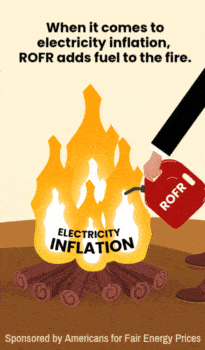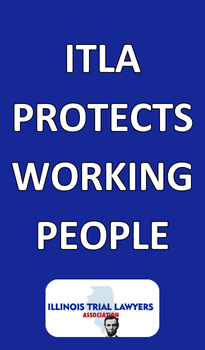|
Multiple disaster declarations are actually common - And a look at that appellate prosecutor’s memo
Monday, Apr 27, 2020 - Posted by Rich Miller [I’m bumping this up from Sunday for visibility and opening comments ahead of today’s hearing.] * Let’s circle back to Friday…
State statute allows a governor to declare a disaster for 30 days. That is undisputed, even by Bailey. The law is silent, however, on whether the governor has the power to issue another declaration. * It turns out, declaring more than one disaster is common practice. From May 8, 2019…
From May 31, 2019…
What Rep. Bailey is essentially saying here is that the governor has to either give up and not issue subsequent proclamations during massive flooding, or involve the General Assembly, which, theoretically, could be under water at the time (and actually is under that theoretical “water” right now). * OK, let’s take a look at Section 7 of the statute…
Again, the act is completely silent on what happens after 30 days. There is no specific prohibition against declaring another disaster. And there are more than just hints in the full statute that the General Assembly actually intended to remain silent on this particular 30-day renewal point. For example, Section 6 of the statute requires the GA or a bicameral committee to approve any “reciprocal mutual aid agreements or compacts with other states.” And this is from Section 9…
That’s basically a continuing appropriation. The section goes on to say that if the governor determines that state and other resources are insufficient, he has to request an appropriation from the General Assembly. However, if the House Speaker and Senate President certify that the legislature is not in session…
So, the General Assembly envisioned a limited role for itself in those two sections, but allowed the governor to act without it on funding and, it appears, deliberately avoided mentioning any sort of legislative role in carrying out or approving a second disaster declaration in the same statute. You never know what a local county judge will do, particularly in Rep. Bailey’s part of the world, but that looks to me like a slam dunk. * Let’s now move on to another point. From a press release…
* Let’s look at that the memo. The Director of the Appellate Prosecutor’s Office, Patrick Delfino, tasked a member of his senior staff with this research…
Robinson was essentially gaming out what arguments could be coming at local state’s attorneys if local governments use civil or criminal penalties to shut down a business or church or whatever. His footnote says that this memo is “designed solely to assist you in informing and advising Illinois State’s Attorneys.” This happens a lot. You always want to figure out what the other side will do to you. However, the administration has never said that it would definitely prosecute people. The governor himself has repeatedly said he’s asked state and local police to use persuasion, and if that doesn’t work then they should ask for involvement by local and/or state public health officials. * Let’s go back to the statute…
Since the entire state is a disaster area, the statute gives him some pretty extraordinary powers. * But are those powers constitutional? Not in some instances. From the Robinson memo…
That is exactly right. Statutory law cannot exceed the Constitution and neither, obviously, can an EO. * From the Robinson memo’s conclusion…
That’s basically the defense strategy. The EO is protected because the governor wants only constitutional enforcement, through civil or criminal means. * So, if a cop walks into a church during a service with more than 10 people present and starts making mass arrests, that likely wouldn’t hold up in court. Instead, what the state has been trying to do is use the carrot of persuasion by explaining to pastors, business owners, etc. what could happen with mass gatherings, along with the threat of a local or state public health legal action to prosecute violations of the EO. From ILCS 2305/8.1…
But it doesn’t appear that the state will use that statute in at least certain targeted cases. The state hasn’t, for instance, broken up any protests against the stay at home order, even though they may have been in violation of the EO’s crowd limits. It also hasn’t arrested any pastors or church-goers. * The statute is clear that the Department of Public Health can order a closure…
But there is almost immediate due process written into statute for those hit by a closure order…
And then it goes on to explain what is required to prevail in those court cases. And, as the Robinson memo points out, the governor is not encouraging or carrying out unconstitutional arrests or civil penalties. There may be a standing issue here for Rep. Bailey. …Adding… Sorry that I didn’t post this earlier…
|
| « NEWER POSTS | PREVIOUS POSTS » |















